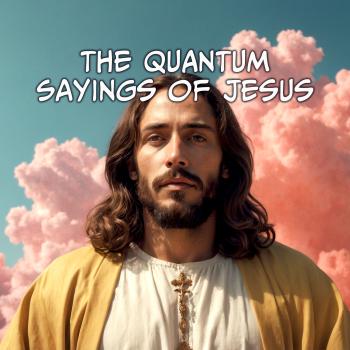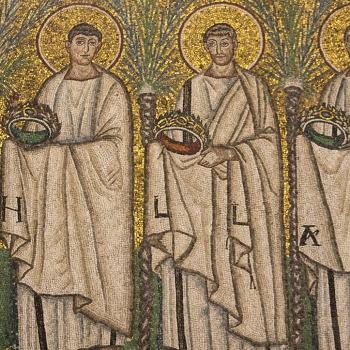
Pexels.com
Genesis 1:1 - "In the beginning, God created the heavens and the earth."
Genesis 1:1 is one of the most foundational verses in the entire Bible. Its primary focus is the basic belief that an omnipotent God is responsible for the creation of the universe. The biggest distinction in how this verse would be interpreted by various religions centers around “how” God creates; something largely left unexplained by the passage.
With that in mind, let's take a look at how this verse might be interpreted from the perspective of different religions:
Christian Perspectives:
- Roman Catholicism:The Roman Catholic Church teaches that Genesis 1:1 reveals God's omnipotence and His free decision to create the world. While God's creation of the heavens and the earth is accepted, the Church doesn't demand a literal interpretation of Genesis. Many Catholics comfortably reconcile scientific explanations (like the Big Bang Theory or evolution) with their belief in God as the originator of all things. Thus, while Catholicism has traditionally subscribed to a Creation ex nihilo belief, many Roman Catholics today lean towards Creation ex materia (i.e., creation from pre-existent matter) because of their belief in the Big Bang Theory or in organic evolution. Scientifically minded Roman Catholics tend to accept the fact that prior to Philo of Alexandria (1st century BCE) the dogma of Creation ex nihilo was simply not part of the Judeo-Christian understanding.
- Baptist Perspective: A traditional Baptist perspective would see God as the creator of the heavens and the earth. However, there is diversity within the Baptist tradition on whether the six-day creation in Genesis is a literal six days or symbolic of an unspecified time period. Most Baptist views of the Bible tend to be more literal and certainly lean toward biblical inerrancy.
- Evangelical Perspective: Like Baptists, Evangelicals often accept a literal interpretation of Genesis 1:1, and some subscribe to “Young Earth Creationism,” believing that the earth is only a few thousand years old. However, not all Evangelicals interpret Genesis literally, and some accept theistic evolution or old-earth creationism.
- The Church of Jesus Christ of Latter-day Saints (i.e., LDS/”Mormon”) Perspective: The Latter-day Saint Christian view affirms that God is the creator of the heavens and the earth. However, the nature of creation is understood to be ex materia (meaning that God “organized” the earth out of pre-existent matter) rather than creating ex nihilo (out of “nothing”). Thus, for most Latter-day Saint Christians, God is the “shaper” and “cause” of the universe and all that is in in it.
- Jehovah's Witnesses Perspective: As a Christian denomination, Jehovah's Witnesses accept the traditional view of Jehovah-God (as He is known) as the creator of the heavens and the earth, as stated in Genesis 1:1. However, they do not necessarily interpret the days of creation as literal 24-hour periods, but believe that the word “day” in the Bible can refer to “a considerable length of time.”Witnesses believe that the earth existed for an unspecified amount of time prior to the “six days of creation” and, thus, is not literally only a few thousand years old. Therefore, they don't traditionally hold a young-earth view.
- Progressive Christian Perspective: Progressive Christianity often interprets the Bible through a more modern, liberal lens, recognizing cultural and historical context and the human element involved in the creation of the Bible. Thus, when it comes to Genesis 1:1, many Progressive Christians understand this to be a metaphorical narrative, rather than a literal scientific explanation for the universe's origins. The biblical creation account, for Progressive Christians, speaks to the broader truths about God's sovereignty, creativity, and the inherent goodness of creation. Progressive Christians usually see no conflict between science, such as the Big Bang Theory and evolution, and their faith. They often see science and faith as complementary ways to understand the truth about our universe and existence.
Other Religious Perspectives:
- Jewish Perspective: Though Judaism is the source of the biblical book of Genesis, contemporary Judaism mostly takes a non-literal view of Genesis 1:1. The most common Jewish interpretation today views the “seven days of creation” as metaphorical or symbolic, understanding that each "day" likely represents an undefined period of time. The primary takeaway is the emphasis on a single, all-powerful God who is the source of all existence; though that being likely “creates” in a scientific manner.
- Pagan Perspective: Paganism is a broad term covering many diverse spiritual and religious beliefs, many of which are polytheistic or pantheistic, so they may not adhere to the common monotheistic reading of Genesis 1:1. However, many pagans will point out that the term for God (employed in this verse) is “Elohim,” which is plural (in the Hebrew) and can mean “the gods.” Thus, for Pagans, they would read Genesis 1:1 as saying, “In the beginning, the gods created the heavens and the earth.” This reading well dovetails with Pagan views of God and creation. Of course, many Pagans would still interpret the Genesis account metaphorically, seeing "God" (or “the gods”) as a representation of a divine force or energy rather than as an anthropomorphic deity. However, beliefs vary widely in Pagan communities and, thus, it is impossible to summarize what all Pagans would believe about this verse, or even about the creation.
- Hindu Perspective: Hindu cosmology typically speaks of a cyclical universe that goes through phases of creation, preservation, and destruction every 2 billion, 160 million years. This is very different from the traditional linear creation narrative read into Genesis 1:1 (though that verse really doesn’t deny or support the Hindu construct). Hindu scriptures talk about the god Vishnu awaking from a nap (which he took in the coils of a massive cobra that is flowing on a vast ocean). From Vishu’s navel, the god Brahma is born, and from Vishnu’s head the god Shiva is born. Brahman then creates the heavens, the sky, and the earth. While this traditional Hindu creation story seems polytheistic, many Hindus acknowledge that all gods are simply ways to conceive of the one ultimate reality, which is Brahman. Thus, even the Hindu creation could be seen as accomplished by a monotheistic or monistic being, thereby creating some parallels with the Genesis narrative.
- Buddhist Perspective: Buddhism doesn't adhere to the concept of a creator deity, so Genesis 1:1 doesn't align with Buddhist cosmology. Buddhism focuses more on the processes of the mind and ethical behavior than on the origins of the universe. The concept of a beginning or end of the universe are generally viewed as irrelevant to the goal of liberation from suffering (Nirvana)
- Confucianism Perspective: Confucianism is primarily an ethical and philosophical system, focusing on human morality and relationships rather than on theology or the nature of deities. It doesn't typically concern itself with questions about the creation of the universe. Thus, it wouldn't generally offer a direct interpretation or perspective on Genesis 1:1.
- Shinto Perspective: Shinto is an ethnic religion of Japan, focusing on ritual practices to connect present-day Japan to its ancient past—and to the gods that Shinto claim originally founded the islands of Japan. Shinto has its own creation myth involving deities, as depicted in texts like the Kojiki and the Nihon-gi, which differ from the way most practitioners of the Abrahamic faiths would interpret the creation account in Genesis 1:1. The Shinto story of creation would technically be Creation ex materia, and would also agree with the point that Pagans make, that the Genesis account (in the Hebrew) uses a plural to describe the Creator. Thus, Shinto sees a “council of Kami” or a “council of Gods” as responsible for the creation of the earth and, more importantly, the islands of Japan. Thus, in certain ways, the Shinto view of the creation has parallels with certain interpretations of Genesis 1:1.
- Muslim Perspective: In Islam, there's a comparable statement in the Qur'an (Surah Al-Baqarah, 2:29): "It is He who created for you all of that which is on the earth." So, the belief in Allah as the creator of the heavens and the earth is foundational in Islam. However, the sequence of His creative acts and the time it took for the creation to be accomplished are different from what is explained in the Bible. Additionally, some commentators on the Arabic suggest that Allah “organized” the earth, while others understand Him to have “created” it–presumably ex nihilo (i.e., out of “nothing”).
As always, these are generalized perspectives and there can be a broad range of beliefs within each religious tradition. No major world religion has complete uniformity of belief among all of its practitioners.
8/23/2023 7:58:34 PM










